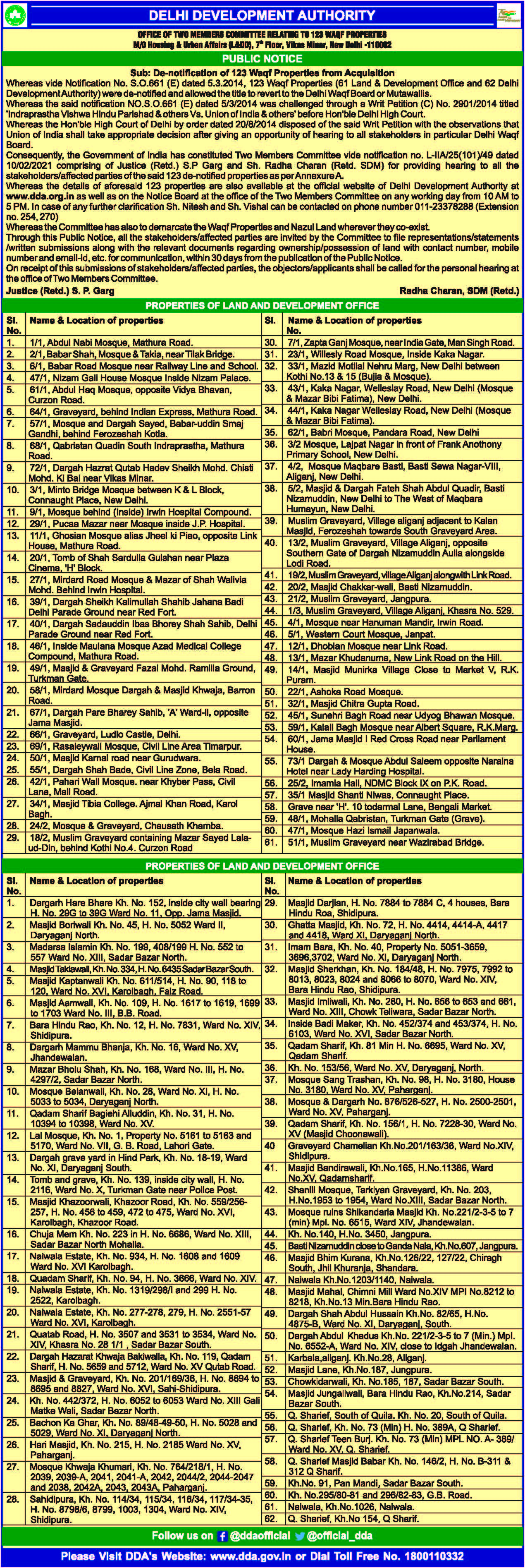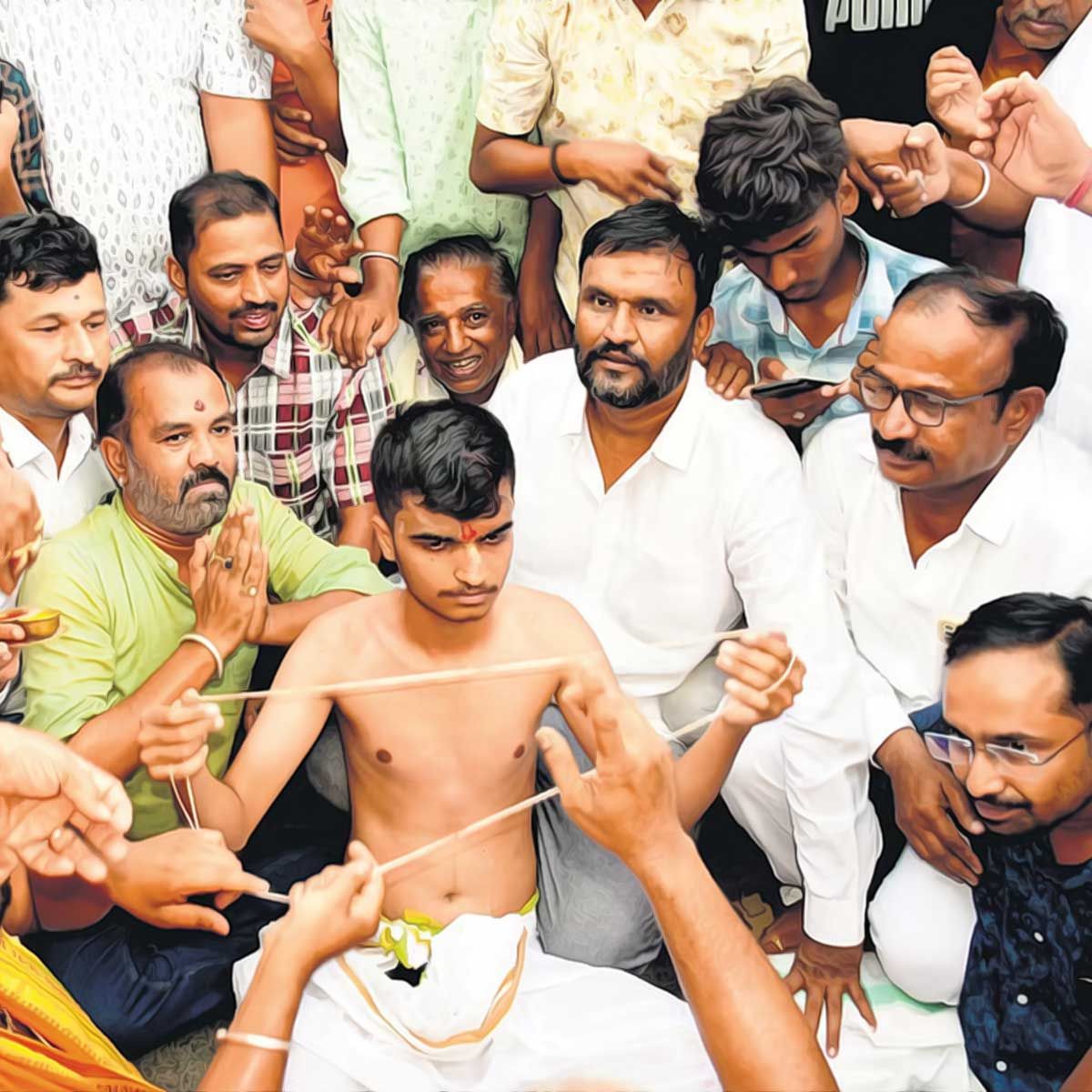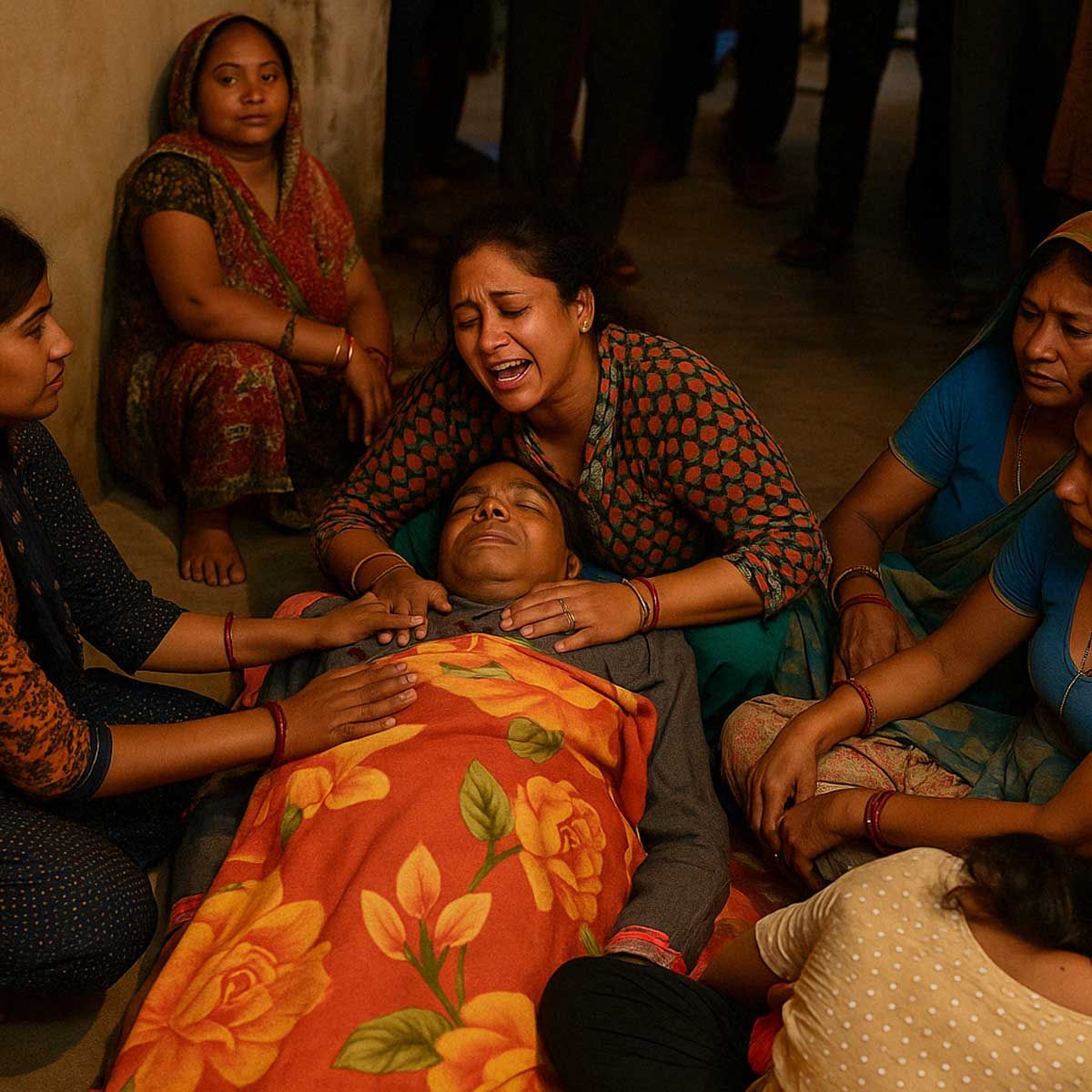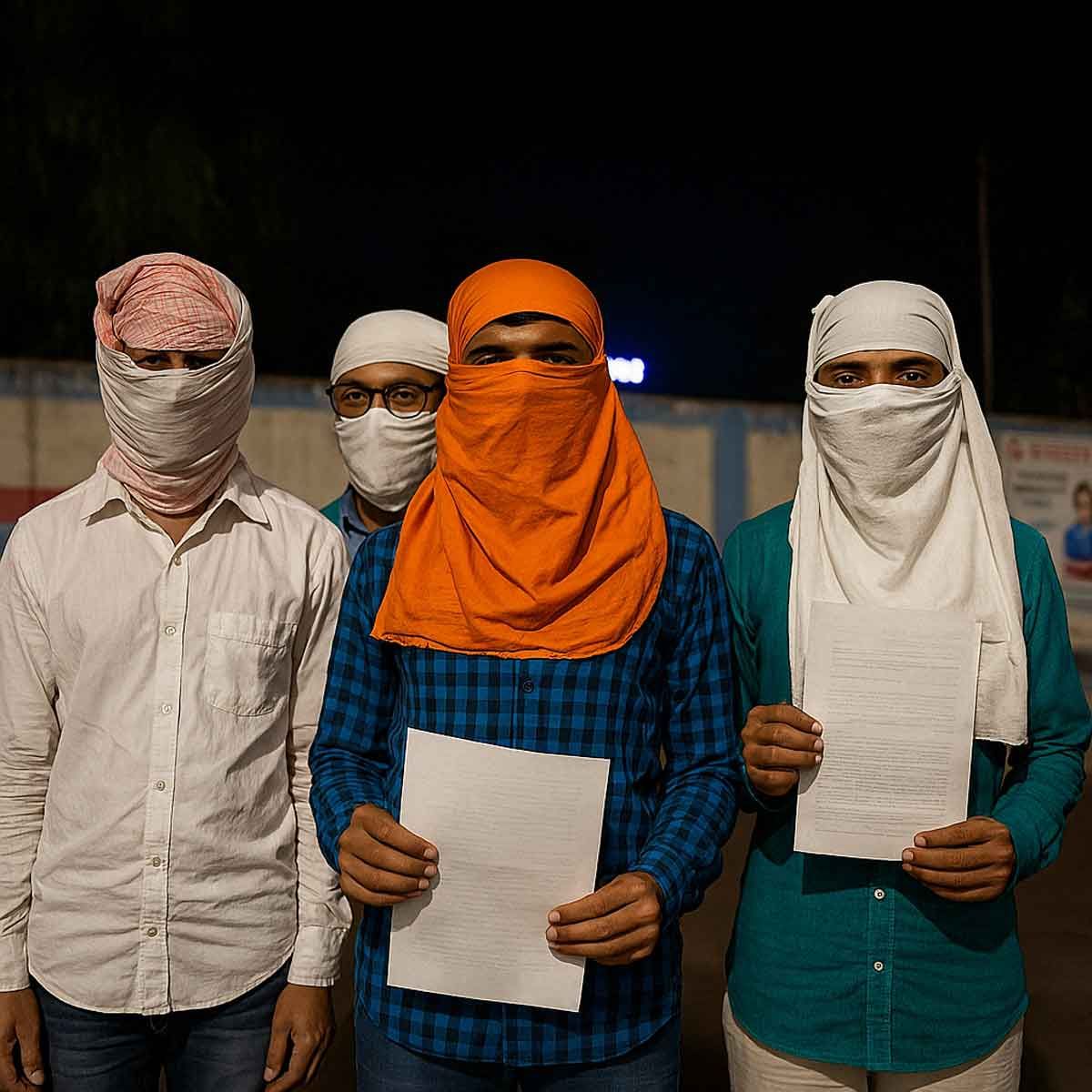More Coverage
Twitter Coverage
Satyaagrah
Written on
Satyaagrah
Written on
Satyaagrah
Written on
Satyaagrah
Written on
Satyaagrah
Written on
JOIN SATYAAGRAH SOCIAL MEDIA
Centre eyes 123 prime Waqf sites in Delhi, including mosques, dargahs and graveyards, serving a notice for Jama Masjid inspection near Parliament, with the nation's gaze fixed, one wonders: Why did UPA cede these prime assets to Waqf just before the polls

In an unfolding drama that has captured national attention, the central government has intensified its oversight on properties related to the Delhi Waqf Board. Based on crucial findings by a dedicated two-member committee delving into the intricacies of denotified Waqf properties, the Ministry made the weighty decision to assume direct control over an impressive 123 properties. These properties, steeped in cultural and religious significance, range from mosques and dargahs to even graveyards.
|
Amanatullah Khan, the figurehead and chairman of the Waqf Board, was officially informed about this sweeping decision. He was handed an official letter from the Ministry, marking a moment that could potentially change the landscape of Delhi's religious sites.
But perhaps what sent a stronger ripple of surprise was the sudden notice that was prominently slapped onto the iconic Jama Masjid's walls. This majestic mosque, which stands tall opposite the very Parliament of India, was intimated by the Land and Office of the Union Ministry of Housing and Urban Affairs. According to the details specified in the notice, a thorough inspection of the Jama Masjid is scheduled for the upcoming Monday. The inspection wasn't a mere bureaucratic whim; it was a direct consequence of a ruling from the Delhi High Court.
But what was even more startling was the directive within the notice. Whoever held the reins as the "occupant of the property" was now thrust into the spotlight. They were instructed, in no uncertain terms, to be fully prepared and arm themselves with every possible document and map that could validate their claims. The implication was clear: the inspection was no casual affair, and every claim would be meticulously scrutinized.
While the initial findings of the two-member committee have spearheaded the Ministry's decision to oversee the 123 properties associated with the Delhi Waqf Board, the echoes of this decision are being felt deeply across various echelons of the community. These aren't mere plots of land; they encompass mosques, dargahs, and graveyards – each with its rich tapestry of history and significance.
|
Amanatullah Khan, the man helming the Delhi Waqf Board, wasn't just an impassive bystander. He received formal communication from the Ministry, a letter bearing the gravity of the decision to supervise these iconic properties directly. Every word in that letter symbolized a pivot in the trajectory of Delhi's landmark sites.
But the Jama Masjid stands out, not merely for its architectural splendor but for the fervent responses it has invoked. Muhibullah Nadwi, the esteemed Imam of Jama Masjid, emerged as a vocal presence amidst the brewing tensions. With an air of unwavering confidence, he assuaged the public's fears by asserting that the Jama Masjid faced no looming threats. Nadwi's claims weren't baseless; he mentioned the existence of concrete documents that would fortify the mosque's position. In a gesture of transparency, he even extended an open invitation to the media. Their lenses and microphones were welcome to capture the inspection process, ensuring that the truth, whatever it might be, was laid bare for all to witness.
But there's a backstory that casts a shadow on these events. Earlier in May, the Delhi High Court had found itself ensnared in this controversy. A petition had been presented to the Court, fervently seeking to halt the impending inspection of these 123 properties. The crux of the petition was a challenge, a bold critique of the central government's move to exclude the Waqf Board from all deliberations linked to these specific properties. However, the Court, after weighing the intricacies, chose not to issue a stay on the inspections. Their decision added another layer of complexity to this already intricate narrative.
The year 2023 saw an event that ruffled quite a few feathers in Delhi's political and cultural circles. On the 17th of February, a rather profound spectacle unfolded - a spectacle of notices being firmly affixed outside 123 properties. These weren't ordinary notifications. Issued by the Union Ministry of Housing and Urban Affairs, these notices relayed a clear, unequivocal message: these properties no longer stood under the protective umbrella of the Delhi Waqf Board.
|
For those familiar with the historical landscape, the importance of these 123 properties is palpable. A diverse ensemble of mosques, dargahs, and a cemetery, each of these sites bears its own legacy and significance. The roots of their association with the Delhi Waqf Board can be traced back to the eve of the 2014 Lok Sabha elections. It was during this politically charged period that the then-reigning Congress-led UPA government decided to bequeath these properties to the Waqf Board. This gesture, though seen by many as a nod to preserving cultural heritage, wasn't without its detractors.
The Vishwa Hindu Parishad, a prominent organization, expressed its apprehensions. Their concerns were less about the properties themselves and more about their strategic locations. Feeling a compulsion to ensure that these concerns didn't remain mere murmurs in closed rooms, they decided to knock on the doors of the judiciary.
To address the burgeoning issue, a unique approach was adopted. Instead of relying on single-handed judgments, a two-tiered committee system was instated. This included a one-member overview committee, complemented by a more detailed two-member panel. The latter was no ordinary group; it had the insights of a retired SDM and the wisdom of a former Delhi High Court judge. Their primary objective was clear - to lend an ear to those affected by this seismic shift in property control.
After extensive deliberations and hearings, the committee arrived at a pivotal recommendation. They believed that a physical inspection of these contentious 123 properties was paramount. This recommendation, though simple in its essence, was bound to set the stage for further debates and discussions. The wheels were now in motion, and the next chapters in this gripping saga were eagerly awaited by all stakeholders.
 |
 Support Us
Support Us
Satyagraha was born from the heart of our land, with an undying aim to unveil the true essence of Bharat. It seeks to illuminate the hidden tales of our valiant freedom fighters and the rich chronicles that haven't yet sung their complete melody in the mainstream.
While platforms like NDTV and 'The Wire' effortlessly garner funds under the banner of safeguarding democracy, we at Satyagraha walk a different path. Our strength and resonance come from you. In this journey to weave a stronger Bharat, every little contribution amplifies our voice. Let's come together, contribute as you can, and champion the true spirit of our nation.
 |  |  |
| ICICI Bank of Satyaagrah | Razorpay Bank of Satyaagrah | PayPal Bank of Satyaagrah - For International Payments |
If all above doesn't work, then try the LINK below:
Please share the article on other platforms
DISCLAIMER: The author is solely responsible for the views expressed in this article. The author carries the responsibility for citing and/or licensing of images utilized within the text. The website also frequently uses non-commercial images for representational purposes only in line with the article. We are not responsible for the authenticity of such images. If some images have a copyright issue, we request the person/entity to contact us at This email address is being protected from spambots. You need JavaScript enabled to view it. and we will take the necessary actions to resolve the issue.
Related Articles
- "मनौती": Maharashtra government's allocation of ₹10 crore to the Waqf Board ignites fierce backlash from the VHP, exposing deep rifts within the BJP, and highlighting communal tensions as local Hindu groups protest perceived religious appeasement
- Order of Gujarat State Waqf Tribunal which halted the construction of a railway track near 'Firoz Saheb ni dargah' is set aside by Gujarat High Court
- "मुहिम-ए-कब्जा": In a Hindu-majority village, the Waqf Board's dark conspiracy emerges, claiming 3 acres—homes, farmlands, and a revered Shivling—without evidence, ordering immediate evacuation, fuelling deep anxiety and fierce anger among villagers
- "Don't be misled by those who claim Land Jihad doesn't exist, because He does": Tamil Nadu Waqf Board formed by a religion of 1400 years old now claims ownership of 7 Hindu-majority villages and a 1500-year-old temple; villagers show docs to counter claim
- Two minors arrested in Hyderabad gang rape of minor girl at Jubilee Hills: NDTV journalist Uma Sudhir writes an entire thread about second arrest but refrains from mentioning that accused is a son of a Waqf Board official
- Waqf board gets stay on demolition of illegal madarsa after Surat Municipal Corporation fails to update records on time, may hijack second property in just 3 months: Land Jihad surges in Gujarat
- "देश के दुश्मन": Waqf Board claims 53 ASI monuments in Congress-ruled Karnataka, including Gol Gumbaz & Ibrahim Rauza; 43 sites in Vijayapura face encroachments, unauthorized repairs and lost tourism, defying Union Culture Ministry's directives since 2007
- Rampur’s royal family finally repossess waqf properties ‘encroached’ by imprisoned Samajwadi Party MP Azam Khan after a thorough investigation by the Uttar Pradesh Shia Central Waqf Board
- "Waqf Act is against secularism, unity, and integrity of the nation; Waqf is not mentioned anywhere in the Constitution" says Ashwini Upadhyay: Filed PIL in Delhi HC challenging provisions of Waqf Act
- Bihar Sunni Waqf Board's unproven claim over Hindu houses in Govindpur village ignites a legal battle in Patna High Court, echoing alarming land grabs by Waqf Boards across Tamil Nadu, threatening centuries-old Hindu heritage and community rights
- Rajasthan Board of Muslim Waqf despite being land-rich itself turns to the State government for financial assistance in order to pay its workers’ salaries
- "We must distinguish between speaking to deceive and being silent to be reserved": After Delhi and Allahabad, Madhya Pradesh High Court also admitted PIL challenging the constitutional validity of the Waqf Act, enacted by Congress Govt in 1995
- “Once a Waqf, always a Waqf”: 150 families in Tamil Nadu’s Kattukollai village, farming for generations, face eviction after the Waqf Board claimed their land, as Congress MLA Aassan Maulaana backed the move saying they must pay rent, sparking protests
- "Blur lines between religious tradition and property law, a riveting legal drama indeed": Supreme Court rejects appeal in Salem Muslim Burial Ground Protection Committee v. State of Tamil Nadu, "Mere notification not enough to declare wakf property"
- "Sabka hisab hoga ek din, vo munshi pai pai likh raha": Lieutenant Governor of Delhi VK Saxena grants sanction to the CBI to proceed against AAP MLA Amanatullah Khan for unlawful appointments resulting in damage to the public coffers




























